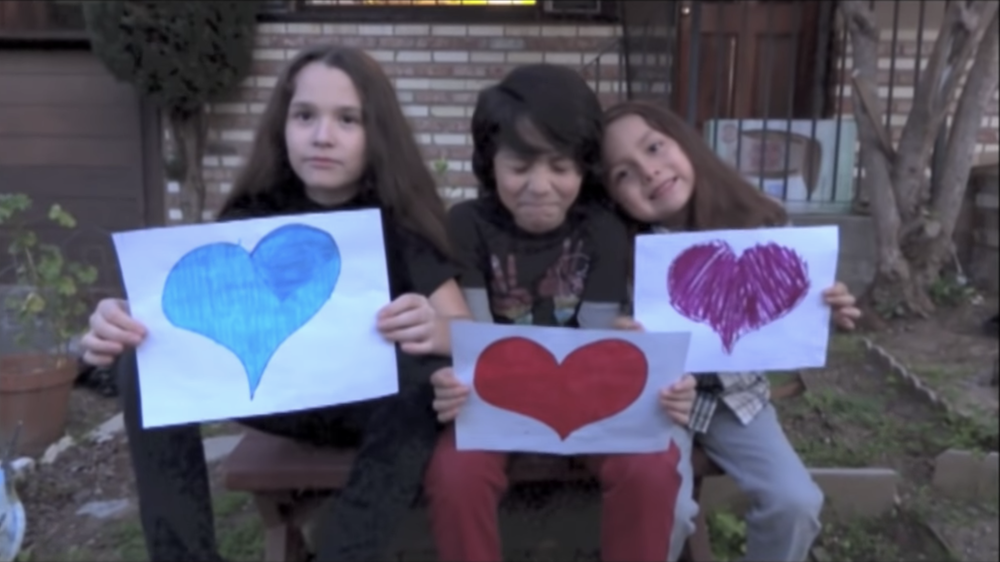
- Details
- By Native News Online Staff
Over a decade ago, the Native American sketch comedy group 1491s went online and asked their fans and supporters a simple question: “How do you say, ‘I Love You’ in your Indigenous language?”
People from all over Indian Country and around the world answered with short videos that feature them showing their love and speaking it in their Native tongues, including Lakota, Mohawk, Haida, Native Hawaiian, Maori, Karuk, Yupik, Cherokee and dozens of other languages.
The 1491s stitched those clips together into a six-minute video that was posted on February 15, 2013 on YouTube. To date, it’s been viewed nearly 74,000 times and viewers continue to comment and show their love for the video a decade later.
Commenters often add the answer to the original question in their posts. “A bit late, but I'll add: Abenaki - K'gezalmal. Passamaquoddy - Koselomol.” wrote @kavikv.d.hexenholtz3474 in a post four months ago.
Another post last year notes: “And from us the Taino, the forgotten, the first to suffer colonization from the Caribbean, Florida and Georgia. We say it : D'ansihi Bui (Dahn-see-hee Boo-ee)” writes @felixmoonwolfrivera.
Some just want to share their sentiments about the power of love. Just three months ago, a YouTuber who goes by the handle @christyyork55 commented: “This is lovely. Wouldn’t it be great to see this again with all languages across the planet included?”
“The MOST beautiful thing I have seen in a LONG while...My Cherokee Ancestors, Guardians and Spirit Thank You with Unconditional Positive Regards and MUCH LOVE!” ️️@tandysrunes8141 wrote 11 months ago.
Here's the video below. Happy Valentine's Day to you and all the people you love.
\
More Stories Like This
Native News Weekly (August 25, 2024): D.C. BriefsNavajo Nation Mourns the Passing of Former Vice President Rex Lee Jim
Deb Haaland Earns Endorsement From Communications Workers of America Local 7076
University Soccer Standout Leads by Example
Two Native Americans Named to Democratic Congressional Campaign Committee's“Red to Blue” Program
Help us defend tribal sovereignty.
At Native News Online, our mission is rooted in telling the stories that strengthen sovereignty and uplift Indigenous voices — not just at year’s end, but every single day.
Because of your generosity last year, we were able to keep our reporters on the ground in tribal communities, at national gatherings and in the halls of Congress — covering the issues that matter most to Indian Country: sovereignty, culture, education, health and economic opportunity.
That support sustained us through a tough year in 2025. Now, as we look to the year ahead, we need your help right now to ensure warrior journalism remains strong — reporting that defends tribal sovereignty, amplifies Native truth, and holds power accountable.
 The stakes couldn't be higher. Your support keeps Native voices heard, Native stories told and Native sovereignty defended.
The stakes couldn't be higher. Your support keeps Native voices heard, Native stories told and Native sovereignty defended.
Stand with Warrior Journalism today.
Levi Rickert (Potawatomi), Editor & Publisher

